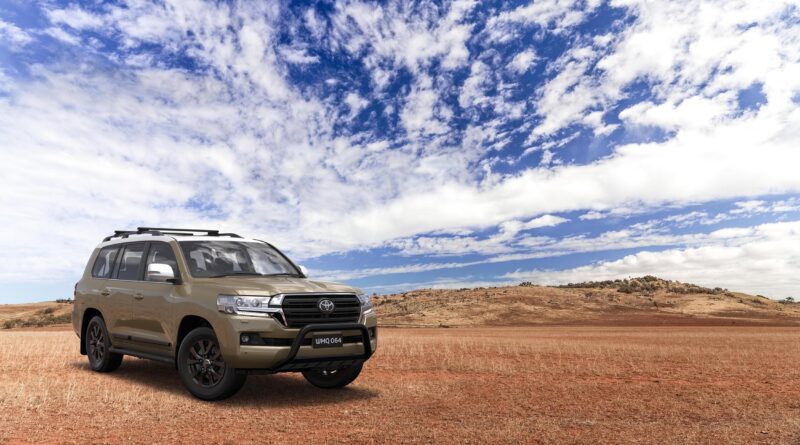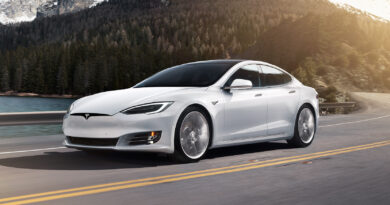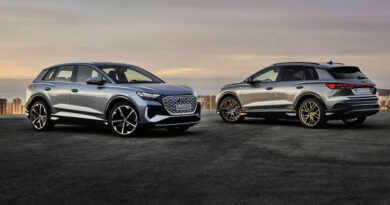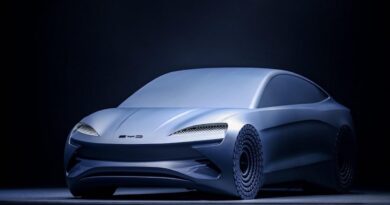Hydrogen FCEV ‘suitable technology’ for LandCruiser: Toyota
Toyota believes hydrogen will play a significant role in Australia’s zero emissions future – all the way up to the mighty LandCruiser four-wheel drive.
Soon after Toyota confirmed the Mirai hydrogen fuel cell electric vehicle would go on sale to the general public in “two to three years” – 20 Mirais are currently being used by fleets and companies in Melbourne – Toyota Australia product planning chief Rod Ferguson acknowledged the LandCruiser was a logical recipient of the technology that can turn hydrogen into electricity with the only emission being water.
“Is there scope for a future LandCruiser fuel cell down the track? Could be,” Ferguson told EVcentral.
“No doubt that sort of consideration is put into that platform,” he added when asked whether the upcoming new LandCruiser – tipped to be called 300-Series – would be engineered from the outset to take a fuel cell system.
The new LandCruiser 300-Series is due this year and would have a model life of at least 10 years (the current 200-Series LandCruiser was launched in 2007).
“It’s [hydrogen fuel cell] a suitable technology.”
It appears Toyota could be gearing up to inject its FCEV tech into the LandCruiser eventually, even developing a modular fuel cell that can be scaled according to the size of the vehicle and the application.
That also opens it up to other Toyota’s designed to go off-road, including the Hilux ute and Prado.
Along with Hyundai, Toyota sees FCEV as a highly relevant technology for Australia, especially heavy duty applications such as trucks and buses.
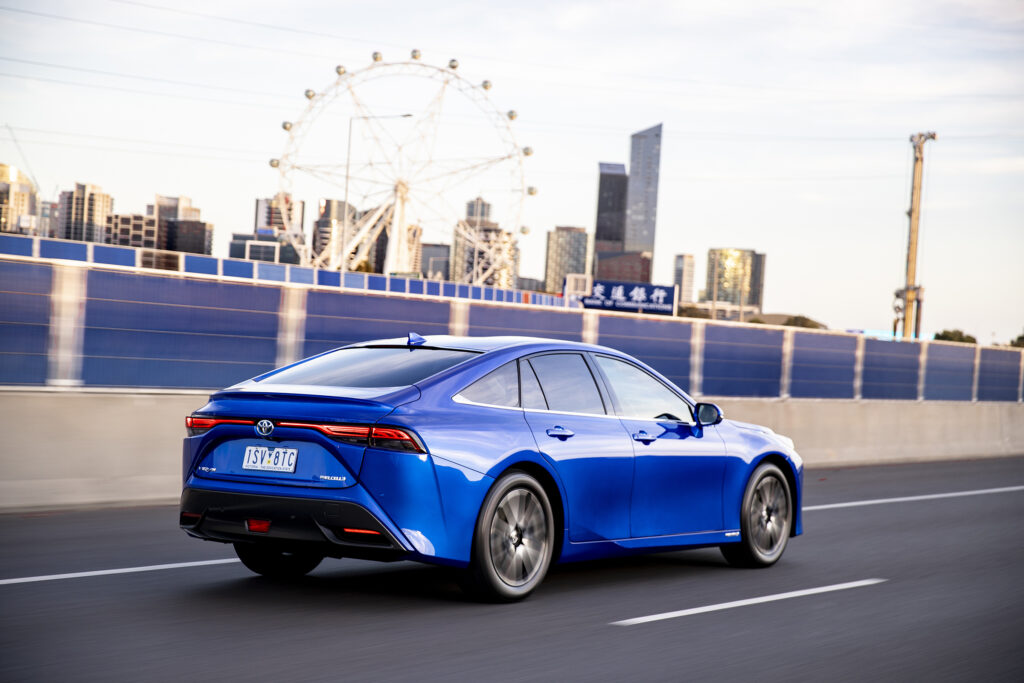
Key to its appeal is the ability to carry lots of energy for very little weight penalty, something that makes it useful for long distances and towing. There’s also the advantage of refueling times commensurate to those for petrol and diesel.
“The energy density of fuel cell is very good … you don’t have to use up a lot of payload,” says Ferguson.
The issue with hydrogen right now is a lack of refueling infrastructure: there’s a single station in Canberra and another at a Toyota facility in Altona in Melbourne’s west.
Toyota Australia vice president sales and marketing Sean Hanley believes hydrogen fuel cells will play “a fairly significant future in this market”.“It will take some time, maybe a decade, maybe less,” says Hanley, highlighting the lack of refueling stations as the only barrier to hydrogen vehicle uptake.
“Infrastructure is the only thing that will hold hydrogen up.”
Hanley believes hydrogen can play a significant role in the emerging electrified vehicle landscape within a decade, “maybe less”.
“This could be a very broad technology.
“I’m thinking ten years we’ll see some noticeable infrastructure, some more mainstream cars.
Hanley says the Mirai that is currently being leased to relevant companies and fleets in Melbourne will soon be on sale across the 200-plus-strong Toyota dealer network, with the intention of waving the hydrogen FCEV flag in the same way the Prius did for hybrid technology 20 years ago.
“Our intention is that our dealer network eventually will sell Mirai fuel cell electric vehicle as mainstream cars.
“Our full intention is that that Mirai will land in Toyota dealerships and every one of them will be selling them at some point.
“When I say soon, the next maybe two to three years.”

